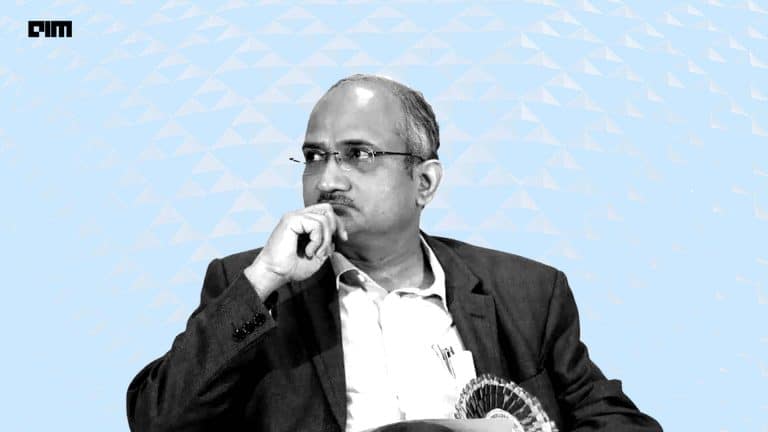Growing geopolitical tensions, coupled with supply chain constraints, have pushed many countries, including India, to consider building their own semiconductor capabilities. Over time, the US has attempted to hinder China’s semiconductor capabilities and also limit their access to high end Graphics Processing Units (GPUs), an important tool used for AI workloads.
“I really think chips are the new oil. While oil defined the 20th century, chips will define the 21st century and every country will want to own elements of manufacturing,” Krishna Rangasayee, the CEO and founder of SiMa.ai told AIM in an exclusive interview.
Founded in 2018, the startup positions itself as a software company which also builds its own silicon. It focuses on developing AI solutions for the embedded edge computing market.
Despite being headquartered in San Jose, California, SiMa.ai has a significant presence in India, and around half of the startup’s innovation happens in India.
Interestingly, the company has chosen India as a strategic market over China, which is the largest semiconductor market in the world.
Engaging with India, Not China
Rangasayee’s recent visit marked his third trip to India in a year. During these visits, Rangasayee, who has accumulated over 18 years at Xilinx, dedicates much of his time engaging with a diverse array of customers, including automobile manufacturers, drone companies, robotics firms, and public sector entities.
The company is betting on India’s renewed focus on manufacturing and semiconductor fabrication ambitions. “I think India is going to be an AI product focussed leader globally and a lot of innovation in AI will come from India,” he said.
However, for strategic reasons, the company has chosen not to sell its chips in China.
“The world of AI and chips and geopolitics is going to be complicated. We are a startup and we are very focussed on the applications that are coming together in the US and Europe. I have no doubt that it will be happening in India as well,” said Rangasayee.
It’s a bold move for a startup, especially considering China’s status as the world’s largest semiconductor market. In 2022, global semiconductor sales totaled $574 billion, with China capturing a significant $180 billion, equating to a 31.4% market share.
Rangasayee’s decision not to engage with China might also be influenced by the US restrictions that prevent US companies from directly selling chips to China. On the contrary, China has committed to fulfilling nearly 70% of its domestic silicon requirements internally by 2025. Rangasayee also said his decision to not engage with China has to do with AI regulation.
“AI is a complicated area. At some point, there will be an interesting set of regulations that will come together and as a startup, we need to be careful. We are not a big company and we cannot afford to engage and then revisit our engagement,” he said.
“We have so many opportunities in the US, Europe, India, Korea and Japan and that’s a very large market footprint for us,” he added.
Preparing for a Multimodal World with Second-Gen Chips
The startup also recently announced its second-generation chips, which are fabricated by the Taiwanese semiconductor giant TSMC, are under preview and will be publicly launched in the first quarter of 2025.
Built on 6 nm nodes, these chips are designed to run generative AI models on the edge along with computer vision models. The initial generation of these chips is tailored for computer vision applications at the edge only.
“The gen-one chips were on a 16 nm technology and no doubt we will have improvements in terms of power primarily but also on performance. Our partners continue to be TSMC, Arm and Synopsis and we are really appreciative of the help they provide in building this platform,” he said.
The startup aims to build one platform catering to original equipment manufacturers (OEMs) running convolutional neural networks (CNNs), vision transformers, as well as large multimodal models (LMMs).
Rangasayee believes multimodal is the future and this is what the startup has been preparing for.
“Multimodal is going to be everywhere, from every device to appliances, be it a robot or an AI PC. You will be able to converse, watch videos, parse inputs, just like you talk to a human being.”
The startup has also outlined plans for a third generation of chips. Rangasayee mentioned the company’s potential to sell its chips to phone and PC makers but emphasised a cautious approach. However, the startup has no intention of developing chips for data centres.
AGI Might Not Happen in Our Lifetime
While Rangasayee envisions an AI-dominated future, we did ask his thoughts on the current discourse on artificial general intelligence (AGI).
While some notable figures have predicted AI to supersede human-level intelligence within this decade, Rangasayee has a different outlook.
He believes the current AI systems are nowhere near sentience.“I don’t see that happening with the current form of AI, at least in the next 50-100 years. I don’t see a rationale for how that’s connected.
“A lot has been written about it but what is happening is we are moving into an element of multimodality and mimicking things that really help us but the underlying architectures are far (x3) away from being sentient.”
Moreover, many in the industry hold the media complicit in hyping the capabilities of the current AI systems. Rangasayee agrees, “Many smart minds have already spoken about it, but unfortunately the media hypes the capabilities of AI.
Nonetheless, he also adds that “You can never say never. I am an engineer at heart, and I live this every day. I don’t see a roadmap for AI systems having better human capacity and capability.”

































